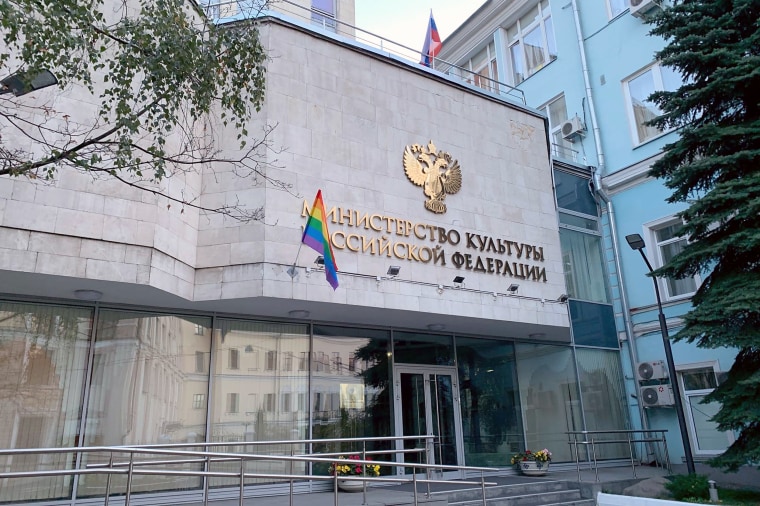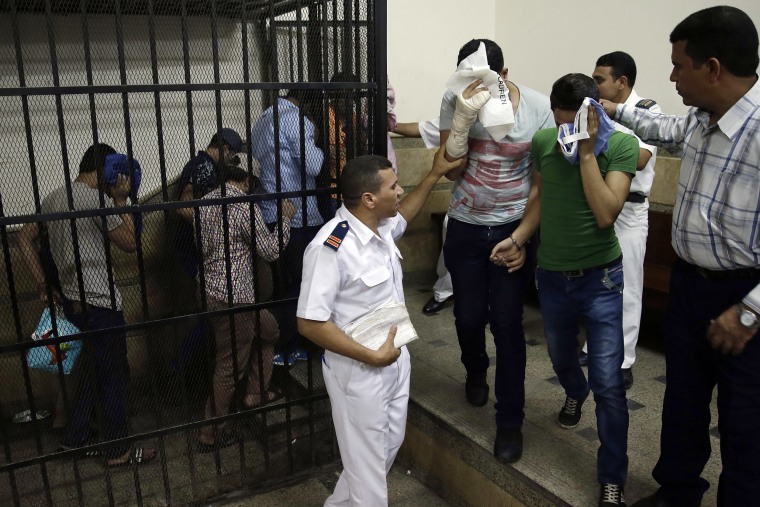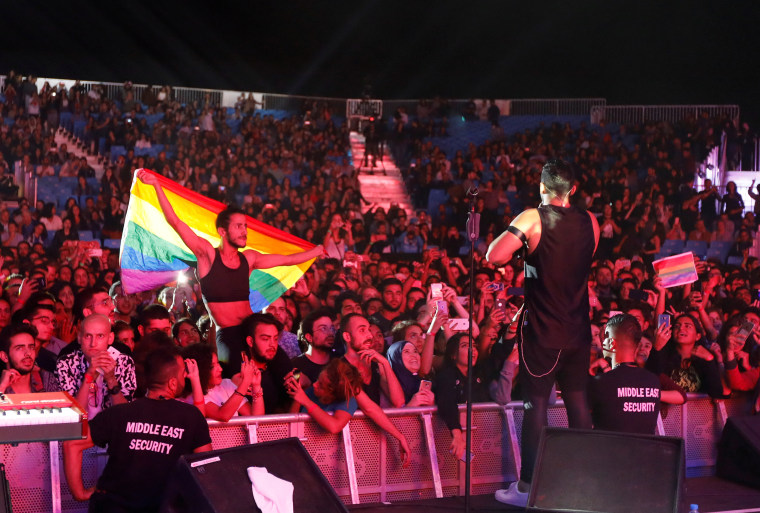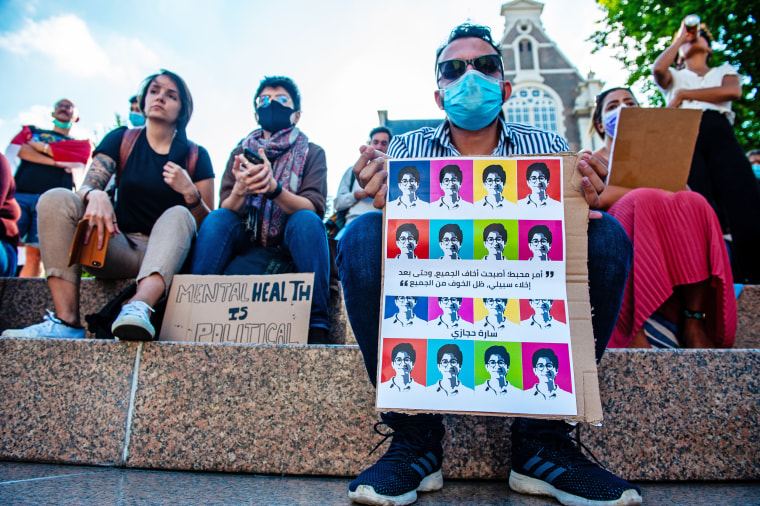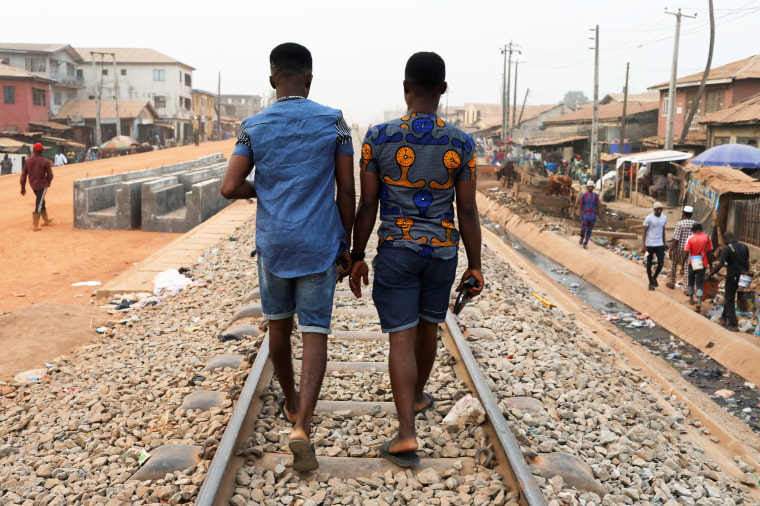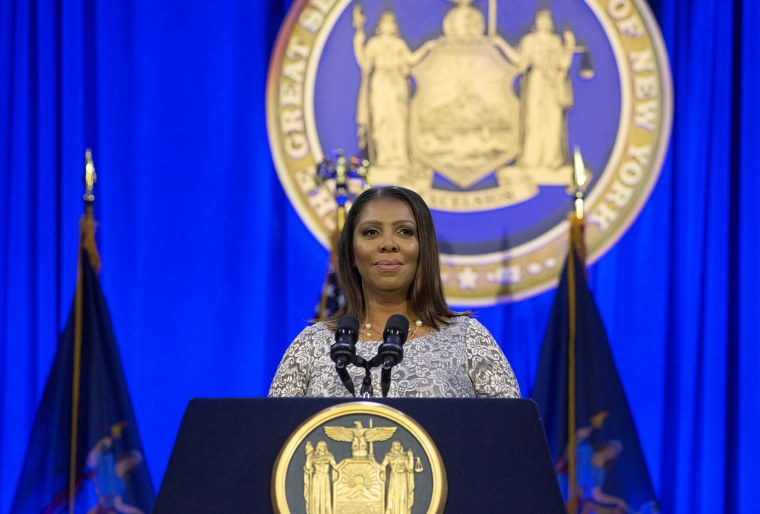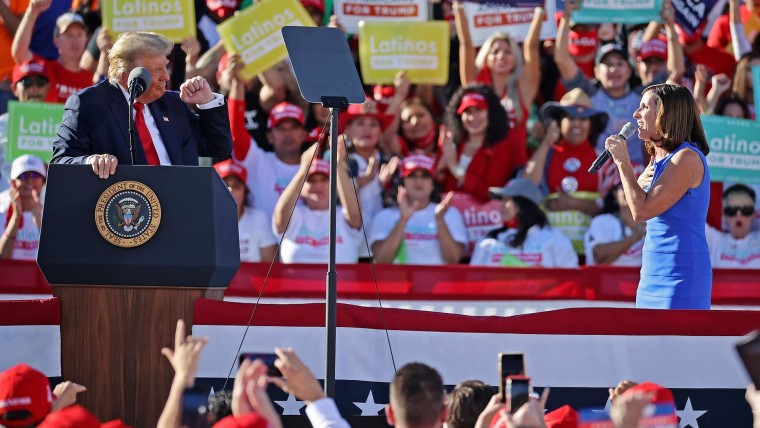By Ray Sanchez and Veronica Stracqualursi, CNN

Michelle Rodriguez Olivero's social media feed hasn't been buzzing about Tuesday's nonbinding vote to make Puerto Rico the 51st star on the American flag. Nor has there been much dinner table talk about it among her many pro-commonwealth relatives in the northern coastal town of Dorado.
After all, the island's been here before. And nothing has changed, since the referendums are nonbinding.
"We've had five votes with no political consequence," said Rodriguez, 31, a poet who works for a nonprofit and supports independence for Puerto Rico. "It has not led to more funding for the island. We still cannot vote for the President. People have no respect for this process."
For the third time this decade, Puerto Ricans will vote on statehood, which is ultimately in the hands of the US Congress. This time, however, voters on the island will simply be asked, "Should Puerto Rico be admitted immediately into the Union as a State?" Yes/No.
But the island's history is far from simple.
As a US territory, Puerto Ricans are natural-born US citizens and can vote in presidential primary elections, but not in the general election, unless they live on the mainland. They don't have a vote in Congress.
"You know how I see the relationship between Puerto Rico and the United States?" said Luis Martinez-Fernandez, a history professor at the University of Central Florida. "It's a couple and they've been dating for over a century. But they're not married and neither side is convinced strongly enough they want that marriage. Because if at least one side wanted it, and the other not, well that side could try to seduce the other side. But in the case of Puerto Rico, there is no consensus."
The island has voted in favor of statehood twice before
It's a love-hate relationship dating to the Spanish-American War of 1898, when the US invaded and acquired the small Caribbean island. It's been a US territory since 1952.
The issue of statehood has always been a point of contention. Of the five nonbinding referendums since 1967, the 2012 vote was the first in favor of statehood. Political analysts at the time said the outcome likely reflected an overwhelming desire for a status change in general, whether it be statehood, independence or some other solution. No action was taken in Washington.
In 2017, Puerto Ricans voted overwhelmingly for statehood in yet another nonbinding referendum. But only 23% of eligible citizens voted after opposition parties urged a boycott of an election they said was "rigged" in the way the ballot was worded. Again, no action was taken.
On Tuesday, residents will again consider statehood the same day pro-statehood gubernatorial candidate Pedro Pierluisi faces Carlos Delgado Altieri, candidate of the pro-commonwealth Popular Democratic Party, in a tight race.
But analysts said Pierluisi's governing New Progressive Party -- beset by corruption scandals and criticized for bungling the aftermath of Hurricane Maria after plunging the island into economic collapse -- organized the statehood vote to animate its base at a crucial moment.
"The catastrophe left behind by Hurricanes Irma and Maria unmasked the reality of the unequal treatment of the American living in Puerto Rico," resident commissioner Jenniffer González-Colón, a Republican and the island's sole, nonvoting member of Congress, said when she launched the new statehood effort in 2018.
The statehood ballot measure, González-Colón promised, would finally put the island "on the path towards the political equality we deserve."
Support for statehood among Democrats
That road to the great state of Puerto Rico is pitted and complicated.
The referendum would need Congress' approval to establish Puerto Rico as the newest state — and that all depends on how the November elections shake out.
Congressional Democrats have led the push for Puerto Rico and Washington, DC, to be admitted as states, but Republican leadership opposes the idea, arguing it could give Democrats four seats in the US Senate and allow them to push what the GOP calls a socialist agenda.
So while a statehood measure might fare better in the Democratic-controlled US House, legislation for Puerto Rico statehood is unlikely to advance in the Republican-led US Senate, and President Donald Trump has said he would be an "absolute no" on statehood for the island.
Puerto Rico has a likelier chance of becoming a state if Democrats win control of the Senate in November, keep the US House and Democratic nominee Joe Biden wins the White House — giving Democrats complete control of the federal government.
"I happen to believe statehood would be the most effective means of ensuring that residents of Puerto Rico are treated equally, with equal representation at the federal level, but the people of Puerto Rico must decide, and the United States federal government must respect and act on that decision," Biden said in September while campaigning in Kissimmee, Florida.
The Senate's top Democrat, Chuck Schumer of New York, who could be the next majority leader if Democrats win the Senate, has voiced support for Puerto Rican statehood and suggested his party would consider the island's status if it takes back the upper chamber.
Bills address pathway for Puerto Rico
Still, even if Democrats retake the Senate, it won't be an easy ride to statehood.
A Democratic majority in the chamber is likely to be slim, which could mean that Senate Republicans opposed to statehood would be able to block any measure with a filibuster. Some Democrats, however, are already suggesting the filibuster be eliminated if Republicans stonewall their every move.
And while Democrats in the House passed a bill in June to admit DC as a state, they seem split on Puerto Rico.
Rep. Darren Soto of Florida, a Democrat, and González-Colón have introduced a bipartisan bill establishing a process to admit Puerto Rico as a state.
The bill garnered support from a handful of House Republicans, including Rep. Don Young of Alaska, a longtime advocate of Puerto Rico statehood, and other GOP lawmakers from Florida and New York.
Soto said in an interview that the "votes are there" and most House Democrats support statehood, including members of the Congressional Black Caucus and the Congressional Hispanic Caucus.
Democratic Reps. Nydia Velazquez and Alexandria Ocasio-Cortez proposed a bill in August calling for a status convention where delegates, elected by Puerto Ricans, develop an option for the island's status with the intent that it be voted on. The bill by the New York congresswomen -- which has no Republican co-sponsors -- hints at the Democratic divide on the statehood issue.
"If the people of Puerto Rico vote yes, that bill's unnecessary," Soto told CNN. "We don't need a constitutional convention to slow down the will of the people should they vote that way. If the people vote no, that may be another option, certainly. But it starts with the election."
He added, "If the people vote yes, they'll be hard pressed to find a lot of support among House Democrats to ignore an election and stand in the way of a majority-Hispanic island becoming the next state of the United States."
'We would be like New Jersey, my dear'
But many Puerto Ricans as well as political observers on the island and the mainland are wary of the statehood effort.
Pedro Cabán, a professor of Latin American, Caribbean and US Latino studies at the University at Albany-SUNY, dismissed the referendum as political "pageantry."
About 3.1 million people live on the island, and more than 5.6 million Puerto Ricans live on the mainland, according to 2017 data from the Pew Research Center.
"I get the sense that when Puerto Ricans leave the island, they're even more nationalistic than when they're on the island," Cabán said. "If they're more nationalistic, that means it's harder for me to believe they really are into statehood."
Some Puerto Ricans fear the cultural implications of statehood, particularly losing a sense of national identity and Spanish as the official language.
"We love to participate in the Miss Universe pageant and the World Baseball Classic," said Cynthia García Coll, a psychologist who teaches at the University of Puerto Rico. "That unites us like nothing else. All that would be gone under statehood. We would be like New Jersey, my dear."
Many island residents doubt the United States -- long indifferent to their plight -- would accept a 51st state that is Spanish-speaking and poorer than the poorest US state, Mississippi.
"The United States opposition to Puerto Rican statehood has been based upon a racist concept, actually beginning with the idea of giving statehood to Spanish-speaking, brown skin Catholic foreigners," Cabán said. "The fundamental opposition is based upon this notion of Puerto Ricans being other than."
Martinez-Fernandez doubts the latest statehood push will succeed even if all the political stars align in its favor.
"The atmosphere in Washington is not propitious for that at all," he said. "You know, in this country we can't come to an agreement about whether to wear masks or not. Imagine inviting a new state that is going to push the balance of power further into the Democratic side. There's no chance that the Republicans will stand for that."
Statehood is unlikely even if Democrats take the White House and Senate, he said.
"It would be way down in the stack of papers on Biden's desk," Martinez-Fernandez said. "He has to reconstruct this country."
'Love always triumphs over status politics'
Rodriguez, the poet in Dorado, said most of her relatives -- concerned about preserving their national identity -- are pro commonwealth, or the status quo on the island. She said she supports independence because it would allow the island to finally break the chains of US colonial control. They all plan to vote no on statehood.
Other Puerto Ricans are throwing their support behind the burgeoning Citizens' Victory Movement, which is promoting a progressive, anti-colonial ideology -- a move that could help the governing, pro-statehood party.
"Many times the conversation is not about which candidates are the most qualified but about, if we let go of the United States, we will die of hunger," Rodriguez said.
Cabán recalled a married couple that was leading recovery efforts in a town in the countryside after Hurricane Maria devastated the island and left thousands dead in September 2017.
"I remember him saying, 'I'm pro independence, dammit!' " Cabán said. "And I asked, 'What about your wife?' And he says, 'She's pro statehood.' Is that a problem? 'No,' he says, 'Statehood will never come.' And she says, 'And independence will never come.' Love always triumphs over status politics."









